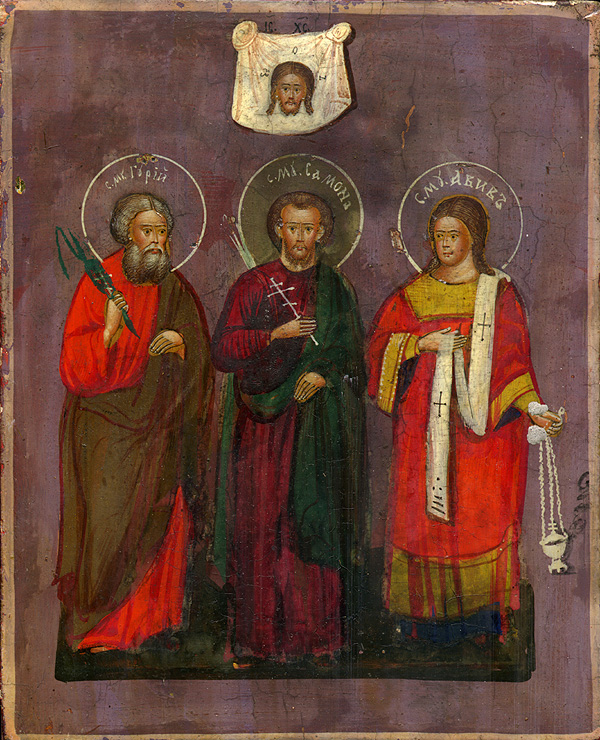
I have literally spoken to thousands of Christians and have noted something disturbing…timidity. It is the hallmark of many Christians, a desire to not engage in conflict, not get involved in controversy, or to risk too much for their faith. The causes of this are many. Perhaps it’s due to 300 years of organising ourselves, not as Christians, but as nationalists, a comfortable middle-class church, poor spiritual teachers, visionless leaders, and the list could go on. I have become convinced that the solution to this timidity is in a muscular Christianity. A rediscovery of our Christian identity and organising ourselves as a Christian community, pursuing our own social, cultural, political agendas independent of any other concerns.
However, how do we change the sentiments of people whose default position is timidity, fear, and cowardice to boldness, courage, and valour? The short answer is that we inspire them; the longer answer is that we build them up in an identity that fortifies their soul and solidifies their resolve. This is a big part of the vocation I feel called to and I know I am not alone. Others have answered this calling of the spirit on this concern, also. I want to explore with you how you can begin to challenge the attitudes of cowardice and timidity within your own fellowship. In what ways can you inspire others of faith to a greater resolve, boldness, courage, valour, and commitment to the cause of Christ?
We must first start by recognising the importance of stories in communicating values, and the importance of telling stories in an engaging and captivating way. All cultures, all religions, all ideologies, all beliefs – the whole of humanity uses stories because the human mind thinks in stories. People communicate values, beliefs, and ideas through stories and those stories can captivate and inspire – if told well. Even the most amazing story can be made a bore fest when drowned in purely cerebral and academic tones. Therefore, accepting these two truths as our premises, we need to find the stories that build up the resolve and rectitude of the faithful. These stories exist aplenty, there are no short supply of them, but we have failed to tell them with animation, emotion, and romanticism – which is the key to making them inspirational.
These stories are those of the confessors and martyrs. A confessor is one who has suffered for the Christian faith, and a martyr is one who has died for the faith. The Christians of the early Church started the cultic (by this I mean devotional) practices of the martyrs precisely because of their inspirational nature, and even went so far as to preserving fragments of their lives, their bone, clothes, and other artefacts so as to give visible reminders of these peoples lives and examples. These things inspired the faithful of their times to be resolute when they fell foul of the authorities who were railing against the Church.
Then something remarkable happened – Christians started to convert whole societies, first Armenia and Georgia, then Egypt and Ethiopia., and eventually the whole of the Roman world. Suffering for the faith in these places, then, came from conflict, criminality or sectarianism. The stories of the martyrs were still told, but in places where Christianity dominated. They became more about honouring the Christians of the past and felt more like telling history, rather than inspiring the saints of the day that heard them (which of course they still did to some degree). However, at the collapse of Christendom and the emergence of the nation state, all valour and courage – indeed nearly all human energy – was directed to the causes and ambitions of the state, even when those ambitions were unchristian. Some saints, of course, maintained dual loci of identity, Christian and national, and fewer still maintained a pure Christian identity (though more often than not couched in denominational terms). However, we were no longer inspired to feats of valour for the cause of Christ, but rather the nation. Millions of brave souls fought and died, and suffered for king and country, whilst only thousands ventured, suffered, and evangelised for Christ.
Since the Great War, parts one and two, national identity has been deliberately torn down and diminished due to the trauma of the wars. In the same way, religious identity had been at the back of the reformation wars. Society, since that time, has esteemed and cultivated personal individual identities and sought to organise itself in this way. This is the prism we find ourselves in today; the matrix in which we are born, that prison of our minds without walls, and through it, we sensate all things. This process has evacuated many of our fellowships of a sense of both purpose and ambition, but also gives us the opportunity to recapture a purely ‘religious’ identity in Christ, couched in terms the liberal progressive world can not easily resist because it can be framed in terms of ‘my personal truth.’ This identity will be greatly bolstered, strengthened, and invigorated if it is, once again, inspired by the stories of the martyrs and confessors.
Christians, particularly of the catholic churches, may instantly think to themselves they have these stories, I would agree they certainly have an awareness of them, but how is it I find these Churches the timidest? I think it is because of the following:
a) The way these stories are told – that is uninspiring retelling of histories, with a hint of this kind of thing happening then and not now, with little to no hint of copying them.
b) It is the confessors and martyrs of old – not of today.
We need to change both of these things! When we tell the stories of the confessors and martyrs of old, we must tell them with vivid colours, animation, and romantic involvement that engages the hearers in their passions. We must do the same when we tell the stories of modern confessors and martyrs, but especially the ones that are happening in real time, as in, with confessors still alive today or martyrdoms that are happening now. This must be joined instantly with a call to solidarity with the persecuted Church, a call to unite with them, to organise, to train, to mobilise, and to resist their persecutors in every way we can – given our skills abilities and resources.
I would encourage you who read this to look at this website to find examples of confessors of the faith: Cases – Christian Concern in the UK. Consider how sad it is that the whole Church is not united in solidarity around these people and their suffering. Now imagine how the world would be challenged if we did unite in solidarity! Imagine if, instead, of resigning ourselves to the misquoted and misapplied mantra ‘Jesus promised we would be persecuted,’ we took seriously the injunction of Proverbs 24:11 which says, ‘Rescue those being taken off to death, and save those stumbling toward slaughter.’ Imagine if we truly saw ourselves as ‘one body’ and then, when one part of the body is suffering, all the parts suffer with it. Indeed, we are to serve one another in love and rally in word, thought, and action, to wherever Christians are suffering. We need to rediscover the ‘cult of the martyrs’ to celebrate these champions, to esteem them, to talk of them often, and with romantic emotion.
This will communicate values such as courage, a willingness, nay even a desire, to suffer for the cause of Christ, to let go of our attachments to this world, meet hardship with valour, difficulties with resolve, and pursuance of the way of our Lord. Don’t just tell the stories of the martyrs and confessors of yesterday; talk of the ones that are happening now – and do not talk about them with dry academic clarity, but with passion, involvement, and awe – calling the faithful to both imitate their virtues and organise in solidarity with them!

